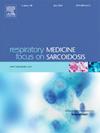下颌骨再定位器(MRA)相关不良事件分析——FDA制造商和用户设施设备体验(MAUDE)数据库的研究
IF 3.1
3区 医学
Q2 CARDIAC & CARDIOVASCULAR SYSTEMS
引用次数: 0
摘要
研究目的:下颌复位器(MRAs)广泛用于阻塞性睡眠呼吸暂停(OSA)和打鼾,但其安全性仍未得到充分研究。本研究使用FDA制造商和用户设施设备体验(MAUDE)数据库分析了与MRAs相关的不良事件。方法:对MAUDE数据库进行回顾性审查,确定2015年1月1日至2025年2月8日期间产品代码为“LRK”的mra相关不良事件。报告分为7组:过敏反应、部件断裂、螺钉松动、牙齿问题、不合适的器具、颞下颌关节(TMJ)问题和其他问题。排除重复报告和不相关病例。结果:共分析517例报告,其中过敏反应(40.3%)和器械破损(39.4%)是最常见的报告问题。其他事件包括螺钉松动(6.3%)、牙齿问题(3.5%)、器械不合适(3.3%)、TMJ问题(2.9%)和其他投诉(3.3%)。85%的病例涉及定制mra,而煮咬装置占15%。结论:我们对MAUDE数据库的分析显示,与mra相关的不良事件报告越来越多,反映了它们在治疗OSA和打鼾方面的应用越来越广泛。结果和成功取决于器械类型、患者选择和依从性等因素。不良事件,如过敏反应和设备损坏,强调需要适当的材料选择和维护,倾向于由生物相容性材料制成的mra,而不是聚甲基丙烯酸甲酯或金属。MRAs也存在局限性,如牙齿禁忌症和咬合改变,强调了患者监测的重要性。未来的研究应侧重于前瞻性研究,以更好地评估结果。本文章由计算机程序翻译,如有差异,请以英文原文为准。
An analysis of adverse events associated with Mandibular Repositioning Appliances (MRA)- study of the FDA Manufacturer and User Facility Device Experience (MAUDE) database
Study objectives
Mandibular repositioning appliances (MRAs) are widely used for obstructive sleep apnea (OSA) and snoring, but their safety profile remains underexplored. This study analyzes adverse events associated with MRAs using the FDA Manufacturer and User Facility Device Experience (MAUDE) database.
Methods
A retrospective review of the MAUDE database identified adverse events related to MRAs under the product code “LRK” from January 1, 2015, to February 8, 2025. Reports were categorized into seven groups: allergic reactions, broken parts, loose screws, dental issues, ill-fitted appliances, temporomandibular joint (TMJ) problems, and miscellaneous issues. Duplicate reports and unrelated cases were excluded.
Results
A total of 517 reports were analyzed, with allergic reactions (40.3 %) and device breakage (39.4 %) being the most frequently reported issues. Other events included loose screws (6.3 %), dental issues (3.5 %), ill-fitting appliances (3.3 %), TMJ problems (2.9 %), and miscellaneous complaints (3.3 %). Custom-made MRAs were involved in 85 % of cases, while boil-and-bite devices accounted for 15 %.
Conclusion
Our analysis of the MAUDE database reveals an increasing number of adverse event reports related to MRAs, reflecting their growing use in treating OSA and snoring. Outcomes and success depend on factors like device type, patient selection, and adherence. Adverse events such as allergic reactions and device breakage highlight the need for proper material selection and maintenance, favoring MRAs made from biocompatible materials over polymethyl methacrylate or metal.
MRAs also present limitations such as dental contraindications and occlusal changes, stressing the importance of patient monitoring. Future research should focus on prospective studies to better assess outcomes.
求助全文
通过发布文献求助,成功后即可免费获取论文全文。
去求助
来源期刊

Respiratory medicine
医学-呼吸系统
CiteScore
7.50
自引率
0.00%
发文量
199
审稿时长
38 days
期刊介绍:
Respiratory Medicine is an internationally-renowned journal devoted to the rapid publication of clinically-relevant respiratory medicine research. It combines cutting-edge original research with state-of-the-art reviews dealing with all aspects of respiratory diseases and therapeutic interventions. Topics include adult and paediatric medicine, epidemiology, immunology and cell biology, physiology, occupational disorders, and the role of allergens and pollutants.
Respiratory Medicine is increasingly the journal of choice for publication of phased trial work, commenting on effectiveness, dosage and methods of action.
 求助内容:
求助内容: 应助结果提醒方式:
应助结果提醒方式:


